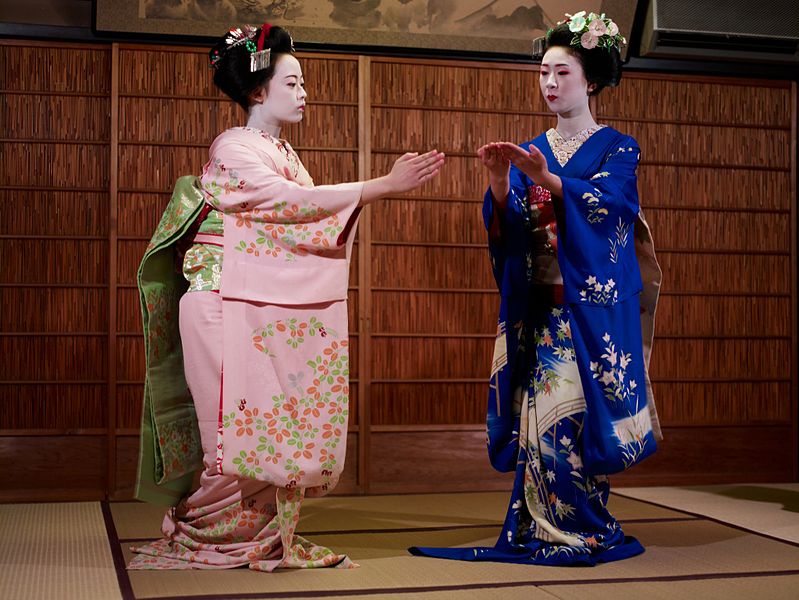Chapter 9 – The Mechanism of Cultural Evolution

geisha dancers (credit: Joi Ito, via Wikimedia Commons)

dabbing (credit: Gokudabbing, via Wikimedia Commons)
In order to build a universal moral code, we must
now do two things. First, we must explain how moral codes get established and
amended. Second, we must extract from our best modern models of the physical
universe the principles that should guide us in building a moral code so that
it is consistent with all our other knowledge in modern times. We need to make
our best ideas of good connect to our
best ideas of real.
Most of us are raised and conditioned to be
fiercely loyal to the way of life we grew up with, so we can expect that
analyzing the roots of morality will be difficult. Powerful and subtle internal
programming steers us toward affirming the morals and morés we grew up with.
But difficult does not mean impossible. Most importantly, we have the evidence
of history and of life as it is lived by real people today to check our
theories against.
And what do we notice about moral code systems if
we closely analyze various human ways of life, that is, the cultures of a
variety of human societies, present and past? Human beings baffle one another
and each even sometimes baffles him or her self. Why do we do the things we do?
The reasoning process that answers this question
contains several steps.
To begin with, we can analyze the everyday actions of
the people around us. Why does this man get up when his alarm clock rings? Why
does he even have an alarm clock? Why does this woman shampoo her hair, then
dry it with a hot-air blowing electrical device? In similar ways, dozens of
mundane questions may be posed about everyday life in our society or any
society. Of course, these actions and the motivations behind them seem obvious
to the people who live in the society where they are practiced. To the people in
each society, their actions just show people being normal. But to people in
other cultures, the reasons for those foreigners’ ways aren’t just confusing;
they’re unknown.

dancers in West Africa (credit: Eric Draper, via Wikimedia Commons)
No comments:
Post a Comment
What are your thoughts now? Comment and I will reply. I promise.